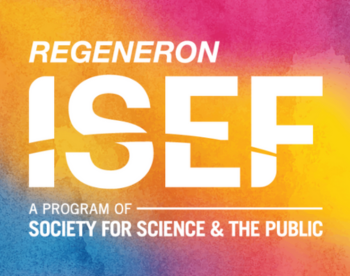Biological Research Programs for High School Students
1. Stanford Institutes of Medicine Summer Research Program (SIMR)
SIMR is an 8 -week summer internship project. The project includes practical research under the direct guidance of one -to -one mentor in the first -class laboratory of the Institute of Medical Research and some of the Department of Medicine at Stanford University. Students applying for this project can choose from eight research areas (research institutes). These eight research institutes are immunology, stem cells and regeneration medicine, neuroma, cancer biology, biological engineering, cardiovascular biology, and cardiovascular biology, and cardiovascular biology, and cardiovascular biology, and cardiovascular biology, cardiac biology, and cardiovascular biology. Biological informatics, genetics and genomics. After being admitted, the school will allocate them to a specific research in accordance with their choices. Another choice for Simr students is to participate in biological engineering training camps. This is the practical learning experience of biological engineering, which does not involve laboratory research parts.
Cost : The application fee is $ 40. If the total revenue of the student's family is less than 80,000 US dollars, or it is difficult to pay for special circumstances, the application fee can be exempted. If it is selected to participate in the plan, no student needs to pay any fees. The minimum allowance of all students is $ 500. A $ 2500 and above allowance will be issued from special subsidies according to demand.
Location: Stanford Medical Research Institute does not provide accommodation.
Eligibility:10th and 11th grade students.
Application deadline: February 24, 2024
Project cycle: 8 weeks.
2. Research Science Institute (RSI)
Project introduction: Every summer, 100 best high school students in the world gathered at Massachusetts Institute of Technology (MIT) to participate in the Research Institute (RSI). RSI is the first free summer science and engineering program for students, combining internal science theoretical courses in schools with research on out -of -school science and technology research.
Participants will experience the entire research cycle from the beginning to the end. They read the latest documents in their respective fields, implemented detailed research plans, and provided verbal and written reports on the results in the form of conferences.
RSI scholars first participated in a weekly STEM dense course and taught by experienced professors. The core of RSI is a five -week research internship. Students carry out personal projects under the guidance of experienced scientists and researchers instructor. In the last week of RSI, students are preparing to write a written and verbal statement about their research projects.
cost: selected for free participation
Location: MIT
Eligibility: 11 grades.
Application deadline:2024 Application has passed, 2025 time is waiting for the official website to release
Project cycle: 6 weeks.
3. Jackson Laboratory Summer Student Program
Project introduction: Summer student program aims to recruit students from different backgrounds and experiences. These efforts have enhanced the impact of the SSP experience on all participants, and supported the state to strive to expand the team of biomedical researchers into groups with lack of representative and insufficient service in the field of biomedicine. SSP will include a diversified learner community, including members of races and ethnic groups in the field of biomedicine, people from vulnerable socio -economic and educational backgrounds, first -generation college students and disabled people.
Strongly encourage group students who are inadequate in the scientific field.
cost: All students will get a 10 -week subsidy of $ 6,500, including accommodation at Highseas (Minoa Project) or St. Joseph University (Connecticut Project). It also provides round -trip travel expenses between students and laboratories.
Location: Balg Port Campus of Maine
Eligibility: Grade 12 has been completed
Application deadline: January 29, 2024
Project cycle: 10 weeks.
4. Boston University Rise International
Project introduction: Students will carry out research projects under the guidance of outstanding teachers, postdoctoral researchers and graduate students.
Choose the internship channel, and participate in the research projects designed by the mentor for 40 hours a week to help them obtain valuable technical and analytical skills, and at the same time understand the scientific process in depth. Students can also choose practical research opportunities in the following fields: astronomy, biology, biomedical engineering, chemistry, computer science, electrical and computer engineering, mechanical engineering, medical laboratory research, neuroscience, physics, psychology and public health , And will show the research results at the poster seminar at the end of the course.
In addition, one day the student union will participate in seminars aimed at training their academic and professional skills. Under the guidance of lecturers in Boston University, students will conduct group research in the university environment. For more than forty years, the University of Boston has provided rich research opportunities for high school students. RISE plans to help many scientists, researchers and professors start their careers.
cost: Application fees, tuition and service fees are $ 5870, and students of other expenses choose themselves according to their own conditions.
Location: Boston University
Eligibility: 11 grades.
Application deadline: February 14, 2024
Project cycle: 6 weeks.
5. UC Santa Barbara Research Mentorship Program
Project introduction: Research and guidance plan is a highly competitive summer project, which aims to attract high school students with qualified and excellent grades from all over the world to participate in interdisciplinary, practical, and university level research. Students will be paired with mentors (graduate students, postdoctorals or faculties), and choose a research project from many disciplines provided by the plan each year.
Students will learn research skills with my mentors, understand professional research opportunities, and improve their academic goals. The Grit lecture series will allow students to associate with some of the best talents in the research community of the University of California Santa Barbara to show their breakthrough research and innovative technologies. In addition to these academic benefits, students will also be immersed in college life and establish contact with the same ambitious and curious students.
Students participating in the research guidance plan and researchers from the University of California San Barbara actively seek new knowledge. In order to allow participants to prepare for arriving at the campus, the plan will start with a multi -day virtual part and aims to introduce students to support their successful resources. During this period, students will meet with RMP mentors and understand their research.
The research project allows students to explore and interested in various interdisciplinary research topics. They will choose the project and pair with a mentor (graduate student, postdoctoral or instructor). The mentor is an expert in the field and is responsible for practical research on university levels.
The research themes change every summer according to the available mentors; however, the focus is always the recent research and development. These research and development shows the situation of university survey methods using the campus departments. Research areas include but are not limited to: anthropology, geography, geography, music, biochemistry, ecology, global research, neuroscience, biology, history, physics, physics, chemistry, education, marine biology, psychology, strangeness, strangeness Kano research, engineering, mathematics, sociology, computer science, environmental policy, media art and technology, statistical data, etc.
cost: Students choose to commute, with a total cost of $ 4975; choosing accommodation, the total cost is $ 11,874. The project has a scholarship, but the number is limited, and students need to apply according to the conditions.
Location: the University of California San Barbara
Eligibility: Grade 10 and Grade 11 high school students
Application deadline: March 18, 2024
Project cycle: 6 weeks.
6. The Rockefeller University Summer Science Research Program (2024)
Project introduction: SSRP scholars will participate in a research team designed and guided by Rockefeller trainees. The structure of the SSRP team is similar to the Laotfeller Laboratory. One of the students served as the team leader and was supported by special scientists. Each team has its own space in the RocKedu laboratory.
Elective curriculum, guest lectures and social activities have enhanced the experience of the SSRP team.
cost: Free.
Location: Rockedu Science Promotion Laboratory of Rockefeller University
Eligibility: second and third grade students in high school.
Application deadline: January 5, 2024
Project cycle: 7 weeks.
7. University of Iowa Secondary Student Training Program (sstp)
Project introduction: SSTP is a highly selected and dense summer research project. SSTP provides students with rare opportunities to help them achieve academic and professional goals. Students will study under the guidance of world -class teachers of research universities. Participate in courses and activities, expand students' vision as researchers and scholars. Explore students' interest, improve their academic skills, and establish meaningful friendship with intellectual peers.
cost: The project cost is $ 7,500. This includes accommodation, diet, materials, participating in all regular activities, and undergraduate scores of the University of Iowa. Project costs do not include miscellaneous fees such as transportation or souvenirs and snacks from the University of Iowa. The project provides various scholarships, including scholarships based on grades and needs. Many scholarships are facing all students admitted by the project.
Location: at the University of Iowa
Eligibility: second and third grade students in high school.
Application deadline: February 14, 2025
Project cycle: 5.5 weeks.
8. Indiana University Jim Holland Summer Enrichment Program in Biology
Project introduction: Jim Holland Summer Summer Plan (SEP) is an exciting opportunity to broaden their perspectives of high school students who are inadequate in genetics, evolution, environmental biology, molecular biology, and plant science. Students will participate in lectures, discuss, and participate in their hands -on laboratory experiences. The SEP event is led by a vibrant and skilled Indiana University faculty and Indiana High School Teacher Team. Students will understand scientific occupations and how to prepare for successful university experiences.
cost: Application fee is $ 75
Location: University of Indiana University Broomon
Eligibility: High School Student
Application deadline: February 2024
Project cycle: 1 week.
9. Roswell Park Summer Research Experience Program
Project introduction: In the summer cancer research experience plan of Roswell Parker, students will carry out their own independent research projects with experts. In this project, students can experience the laboratory in person, discuss and study the latest technology with experts and scholars, and get their support and help. The summer project is an excellent opportunity for in -depth research on specific research or trying new things. During the application, students can rank subdivided subjects they want to choose. These disciplines include biological statistics, cancer biophysics, cancer cell \ molecular biology, cancer genetic, cancer prevention/epidemiology, health behavior/cancer/cancer. Health differences, molecular pharmacology and cancer therapy, tobacco supervision science, etc.
cost: Free, provide allowance.
Location: Rosewell Parker Research Department
Eligibility: third -year high school students.
Application deadline: February 21, 2025
Project cycle: 8 weeks.
10. University of Pennsylvania Summer Academies
Project Introduction: The School of Biomedical Research introduces the experimental foundation of biological cells, molecules and genetics, and focuses on the correlation with the disease. By integrating daily lectures, teacher research lectures, laboratory experiments, and group surveys, students can deeply understand the core of biomedical research.
In this research project, students will be arranged to participate in high -quality lectures, journal clubs, and laboratories to explore the mystery of biomedicine in a reality. When holding a lecture, a lecturer will be invited, scientists, clinicians and faculty employees from the Department of Biology and the University of Pennsylvania. Themes include genomic sequences, CRISPR/CAS-9, vaccine, antibiotic resistance, biological ethics, and so on. Researchers at the University of Pennsylvania showed their latest discovery in the campus laboratory. When students participate in journal clubs, they will be divided into research articles for groups to discuss peer reviews. Under the guidance of researchers or teachers at the University of Pennsylvania, students learn how to read, interpret, analyze, and comment. In addition, students can conduct molecular biology experiments in laboratories used in undergraduate courses. Using PCR, gel electrophoresis, restricted analysis, bacterial transformation, and ELISA, students will determine their blood types, study gene expression in bacteria, and analyze simulation of disease explosion.
cost: Students studying in the Philadelphia Education District may be eligible to participate in the summer college of the University of Pennsylvania for free with the University of Pennsylvania's summer scholarship.
Location: University of Pennsylvania
Eligibility: high school students.
Application deadline: The application for the summer of 2024 has been cut off. Applying in the summer of 2025 will be opened in the late autumn of 2024. Specific time follow the official website information
Project cycle: 3 weeks.
11. University of Notre Dame Summer Scholars
Project introduction: The global health field is much wider than looking for diseases. This course is not only suitable for students who plan to engage in medical careers, but also for anyone who is interested in understanding the complexity of global hygiene challenges. Under the guidance of mentors, students will discuss the important role of medical professionals in the global health field, other measures in disease control, prevention plans to reduce the incidence of diseases, and the importance of solving the decisive factors of other health society.
The global health track will outline the main global health challenges facing the lack of resources in the United States and developing countries. Students will learn how to calculate the "disease burden", how epidemiologists predict the seriousness of the outbreak of the disease, and learn the innovative strategy to improve health. Students will also discuss the role of different participants in global health and their true interdisciplinary nature. Global health challenges must be solved by medical professionals, developers, policy makers, and scientists!
cost: The tuition and accommodation fee of scholars in the summer of 2024 were $ 4,425. This amount includes tuition, accommodation fees, extra -curricular activity fees and field inspection fees. The school will provide limited demand -based parts or full tuition scholarships. For details of specific expenses, visit the Course Application Information of the Virgin University
Location: Virgin University
Eligibility: high school students.
Application deadline: February 2025
Project cycle: 2 weeks.
Another option-Embark Exploration Program
If the geographical location of these summer schools does not suit your actual situation, then you can consider online scientific research, which can also improve your competitiveness in university applications. The Embark Exploration Program is worth exploring. This educational institution provides customized research training for young people, with a core team of master's and doctoral graduates from prestigious American universities. The program offers online short courses led by top-tier mentors, allowing you to collaborate with like-minded peers.
If you have any questions or would like to learn more, feel free to contact us. We are happy to assist you and explore possible collaboration opportunities.



